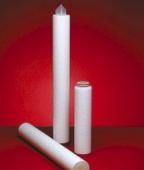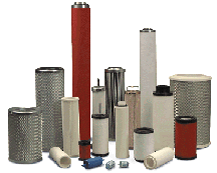When exploring water treatment filtration options for your manufacturing facility, there should  be an area of concern pertaining to water conservancy and water supply (especially freshwater). With emphasis on this as well as reducing the environmental impact from waste, it is important that all industries take another look at their manufacturing processes. As you research the options among newer and ‘greener’ filtration technology, you may find the cost reduction resulting from a new system to be surprising.
be an area of concern pertaining to water conservancy and water supply (especially freshwater). With emphasis on this as well as reducing the environmental impact from waste, it is important that all industries take another look at their manufacturing processes. As you research the options among newer and ‘greener’ filtration technology, you may find the cost reduction resulting from a new system to be surprising.
There are two routes to take when seeking more efficient water treatment filtration options. One is to use equipment that simply requires less fresh water; the second is to reuse water when the amount used is mandated by the process equipment. With this trend, you’ll see reduced costs for the purchase and treatment of fresh water, heating process streams, and waste treatment.
In addition to minimizing these overall maintenance costs, other factors to keep in mind are labor costs, potential production loss, and conversion or recovery of valuable products during both scheduled and unscheduled downtimes. While much of this can seem overwhelming, there are some easy methods you can use to determine whether your current filtration system needs an upgrade. Contact a industrial filter supplier for additional assistance.







 In order to make the right decision about the equipment they use for air filtration, it’s crucial that building owners, managers, operators, and maintenance personnel have access to reliable and accurate information about their options. Proper and in-depth research is a must, as effective air filtration will improve overall indoor air quality and promote a healthier and more productive work environment.
In order to make the right decision about the equipment they use for air filtration, it’s crucial that building owners, managers, operators, and maintenance personnel have access to reliable and accurate information about their options. Proper and in-depth research is a must, as effective air filtration will improve overall indoor air quality and promote a healthier and more productive work environment. removing the undesirable material from a liquid stream, the right filter can save you thousands in ROI, improve operational efficiencies, help protect the environment, and decrease maintenance costs. There are three basic filter types to consider in liquid processing:
removing the undesirable material from a liquid stream, the right filter can save you thousands in ROI, improve operational efficiencies, help protect the environment, and decrease maintenance costs. There are three basic filter types to consider in liquid processing:


